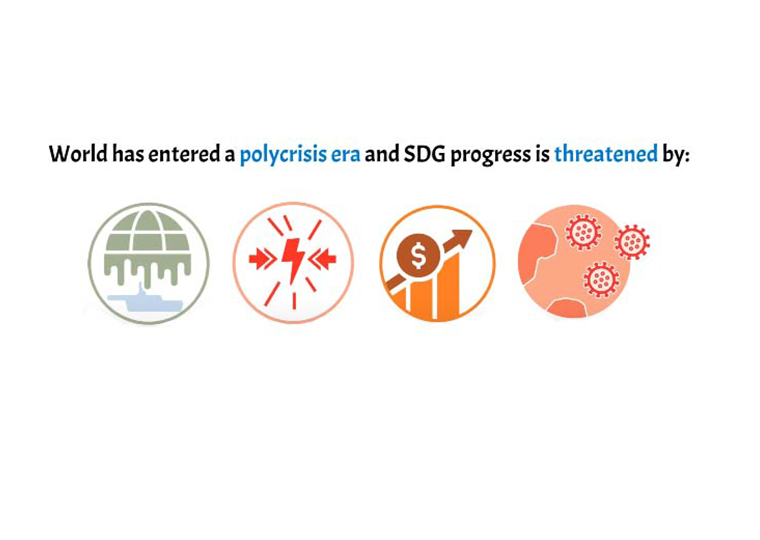Over- or underperformer? Responses vary widely
Feedback is everywhere. Cold, hard rankings at work. Exercise and eating apps tell us how we’re doing compared with our own past performance, or some pre-determined norm from a cohort we’ve been pre-sorted into. Unsolicited messages from the utility company with a colorful chart showing how our electric usage stacks up against neighbors.
With the commodification of data — what isn’t easily measurable these days? — it’s reasonable to assume feedback will only intensify as a means to nudge us toward personal or societal improvement.
That puts the onus on the feedback architects to make sure they are actually delivering information that is motivating. In a series of studies, a team of UCLA Anderson researchers identifies a variety of factors that suggest a one-size-fits-all approach to feedback falls short.
UCLA’s Jonathan E. Bogard, a Ph.D. student, Magali A. Delmas, Noah J. Goldstein, and I. Stephanie Vezich, a UCLA Ph.D. now at Lyft, studied three aspects that can impact one’s response to feedback: the benchmark used for comparison (the target, in their vernacular), how far we are from that given benchmark (distance), and whether we are outperforming or underperforming said benchmark (valence).
In an article published online in Organizational Behavior and Human Decision Processes, they make a case for bespoke feedback. “Peer comparison feedback is not uniformly helpful, but depends on the specific Target, Distance and Valence for each feedback recipient,” they find, based on a series of field studies.
Pick a Motivating Benchmark
One field study focused on the energy consumption of 101 households living in graduate-student family housing over a 24-week span. The households were shown a weekly pie chart of their energy consumption. Some of the participants saw their consumption compared with an average of other households; another group had their consumption compared with the most efficient 20% of households. A control group was not given any comparative reporting.
The weekly feedback also included a message that computed the annualized amount of air pollutants they were producing relative to their benchmark group, with an added nudge that pointed out air pollutants can spur child health issues such as asthma and cancer.
Participants whose benchmark was the group average seemed to take the feedback as motivation; their subsequent usage was 6.4% below the control group. But participants challenged with feedback that compared them with the top 20% of energy efficient households seemed to be dispirited by the high bar, as their consumption was 3.7% higher than the control group.
Yet that’s not a blanket suggestion to always use the average as a feedback benchmark. The study makes a case that setting the higher bar may be a more effective motivator when the recipient has a built-in interest in doing better.
The researchers had collected data on each household’s level of interest in environmental issues. They then tracked the energy usage of households that reported they belonged to an environmental organization. When those greenies were given feedback relative to average energy usage, it didn’t spur a lower level of usage. But when their feedback was relative to the top 20% most efficient households — ostensibly a clique they would aspire to be in given their environmentalist bent — usage was lower.
Households with kids seemed to have been routinely motivated by the asthma/cancer message; regardless of whether their feedback was relative to the average or the top 20%, parents responded to the feedback and reduced their usage relative to the control group.
Positive Feedback Is More Effective
The researchers used their energy data to suss out whether where we land relative to a benchmark impacts our motivation. It turns out we’re suckers for positive feedback.
Based on actual household performance following weeks when performance was above or below a benchmark, the researchers built a model to estimate the impact if relative performance was consistent every week. The model estimates that households that consistently receive positive feedback every week would reduce their energy consumption by 22% regardless of whether their benchmark was the average or the upper 20%. The model suggests that shaming is anything but a motivator to do better; the model estimates people who consistently receive a message showing above-average energy usage would increase their usage by 15%.
Moreover, the magnitude of over- or underperforming a benchmark seems to have its own motivational power. For every 10% increment that a participant household outperformed their benchmark, energy consumption fell by about 7%. (For every 10% increment that a household fell short of their benchmark, energy usage increased by about 3%.)
Keep It Close to Motivate
While the energy consumption field study relied on actual participant data, the researchers wanted to further explore how the magnitude of outperformance or underperformance can change the motivational juice of feedback.
They recruited more than 400 participants to track their daily step count via a smartphone app. After the first week, participants were asked to log in and upload their step data.
In this experiment, everyone was told they were being compared with the top 20% of steppers in their age band. Yet the data they received was manipulated by the researchers, rather than reflecting actual participant norms. One group was told their step count was 4% behind the top quintile from a previous version of the study. The other group was told their step count fell 39% short of making it into the ranks of the overachievers.
In the next week, those who were way off the top-performers’ pace recorded 1,500 fewer steps on average than the participants who were much closer to making it into the top performance quintile. At this juncture, participants were asked to weigh in on whether they thought they could step their way into the top 20% the following week. A regression model confirmed that participants who were furthest from the top performers were more doubtful about their ability to catch up, and they did ultimately live down to their expectations.
The Choice Architect Challenge
Whether you are a manager looking to improve the performance of direct reports, or a business using data to nudge customers to progress toward a goal, a bespoke approach may be more effective.
“Absent careful thinking, social comparison feedback can backfire significantly,” the authors write.
The study concerns energy conservation, but the authors believe its structure — taking into account whether a nudge recipient is doing better or worse than the reference group (valance); and by what degree (distance) — may be applicable for other “social good interventions,” Delmas explains in an email exchange. Possibilities include weight loss, skill learning and savings behavior.
Featured Faculty
-
Magali Delmas
Professor of Management; Faculty Director, Impact@Anderson
-
Noah J. Goldstein
Bing (’86) and Alice Liu Yang Endowed Term Chair in Teaching Excellence; Professor of Management and Organizations; Faculty Advisor, Equity, Diversity and Inclusion
About the Research
Bogard, J.E., Delmas, M.A., Goldstein, N.J., Vezich, I.S., (2020). Target, distance, and valence: Unpacking the effects of normative feedback. Organizational Behavior and Human Decision Processes, Vol. 161, Pages 61-73, https://doi.org/10.1016/j.obhdp.2020.10.003






